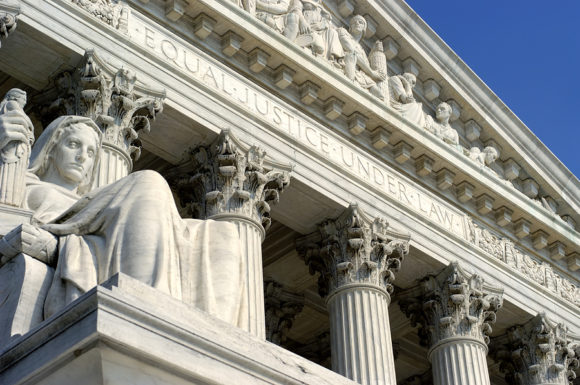DENVER — The U.S. Supreme Court has rejected an attempt by Colorado to close what it calls a loophole that allows businesses to avoid some regulatory sanctions by, in part, saying they’re too poor to pay penalties.
Colorado Attorney General Phil Weiser, a Democrat, said the Jan. 13 decision could hurt the state’s ability to ensure businesses are following regulations and laws. He said under the Supreme Court’s decision not to consider the case, businesses will continue to have a “huge loophole, or even incentive,” to ignore Colorado’s rules for corporate conduct.
“This is, from a regulatory standpoint, a big deal,” he told The Colorado Sun. “It is going to hamstring the ability a range of regulatory requirements on companies.”
The case stems from a Colorado Department of Labor dispute with Dami Hospitality, which owns the small Star Motel in northeast Denver. The agency fined Dami $425,000 for letting its workers’ compensation insurance coverage lapse for nearly 1,700 days through July 2014.
Dami appealed the fine, arguing, in part, that because the business lacked the funds to pay the penalty, the sanction violated the Eighth Amendment of the U.S. Constitution. The Eighth Amendment says “excessive bail shall not be required, nor excessive fines imposed.”
The case ended up in the Colorado Supreme Court, which ruled in Dami’s favor, despite argument from state lawyers that the Eighth Amendment applies only to individuals, and that a company’s ability to pay a penalty should not be weighed as part of excessive fine considerations.
Colorado then appealed to the U.S. Supreme Court.
Daniel Goodwin, an attorney who represented Dami in the case, said Dami’s owner, Soon Pak, had no idea the workers’ compensation insurance had lapsed and that no one was adversely affected as a result. Pak is a Korean immigrant in her 70s who speaks little English and has difficulty understanding technical and legal concepts, her legal team argued.
Pak’s lawyers say she obtained workers’ compensation insurance once she realized it had lapsed and sought to resolve the matter, offering the state $3,500 to clear up the penalty. Pak said her annual payroll, at the time the fine was leveled, was $50,000.
“That’s absolutely ridiculous,” Goodwin said of the $425,000 fine against Pak. “There is no one, other than a major corporation, that could pay a fine of such an amount. An offer of paying a reasonable fine has been made numerous times to the department and they have rejected that.”
Weiser is worried about the ripple effects of the U.S. Supreme Court’s action. He said they could be far reaching, including to the state’s lawsuit against opioid make Purdue Pharma.
Weiser thinks that business owners will take money out of their companies to avoid paying regulatory fines.
“You create a clear incentive for companies to strip money out of corporations,” he said. “This would be hugely problematic for a range of regulator systems — whether it’s health and safety or taxation — where we’ve relied on fines for bad behavior.”
He added: “Fines should be what they should be to serve the regulatory purpose, and you shouldn’t seek to undermine the regulatory purpose based on who the corporation is.”
Goodwin called Weiser’s argument “fallacious.”
“If the state is trying to take away a business,” Goodwin said, “that is not reasonable.”
Was this article valuable?
Here are more articles you may enjoy.


 Tesla’s Austin Robotaxis Report 14 Crashes in First Eight Months
Tesla’s Austin Robotaxis Report 14 Crashes in First Eight Months  Bayer to Make $10.5 Billion Push to Settle Roundup Cases
Bayer to Make $10.5 Billion Push to Settle Roundup Cases  Gas-Guzzler Revival Risks Dead-End Future for US Automakers
Gas-Guzzler Revival Risks Dead-End Future for US Automakers  Walmart to Pay $100 Million to Settle FTC Case on Driver Wages
Walmart to Pay $100 Million to Settle FTC Case on Driver Wages 